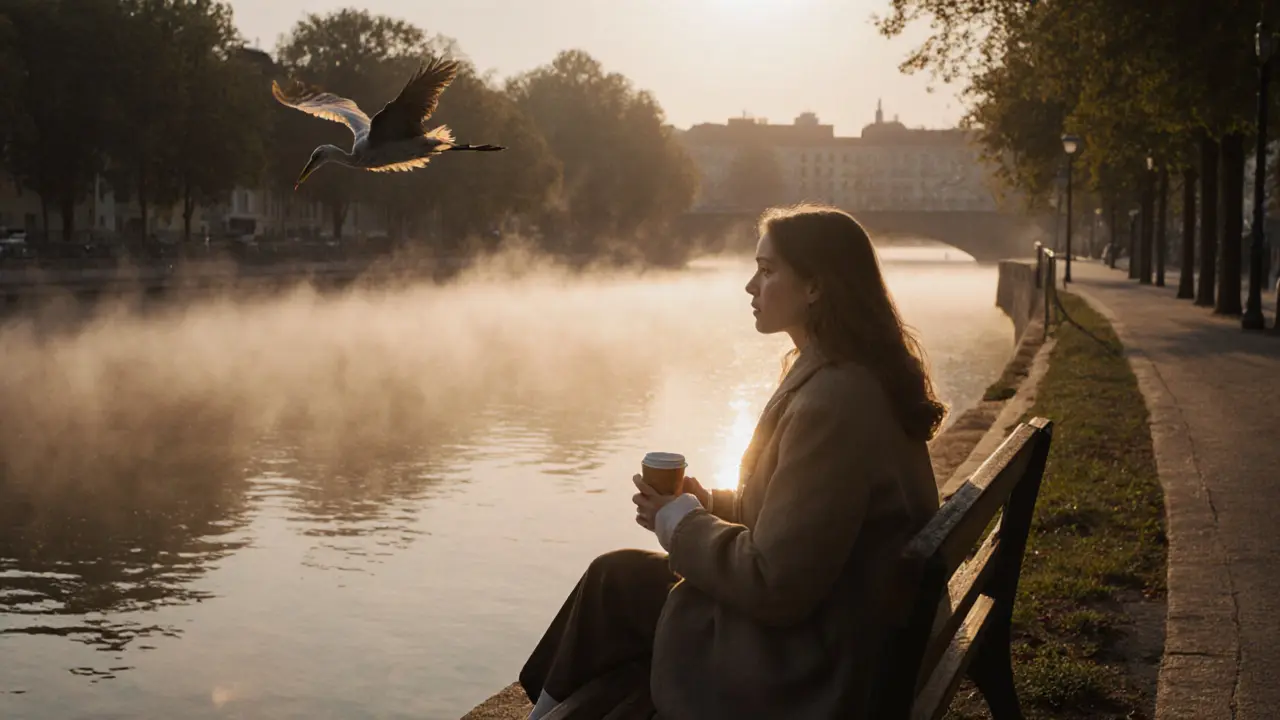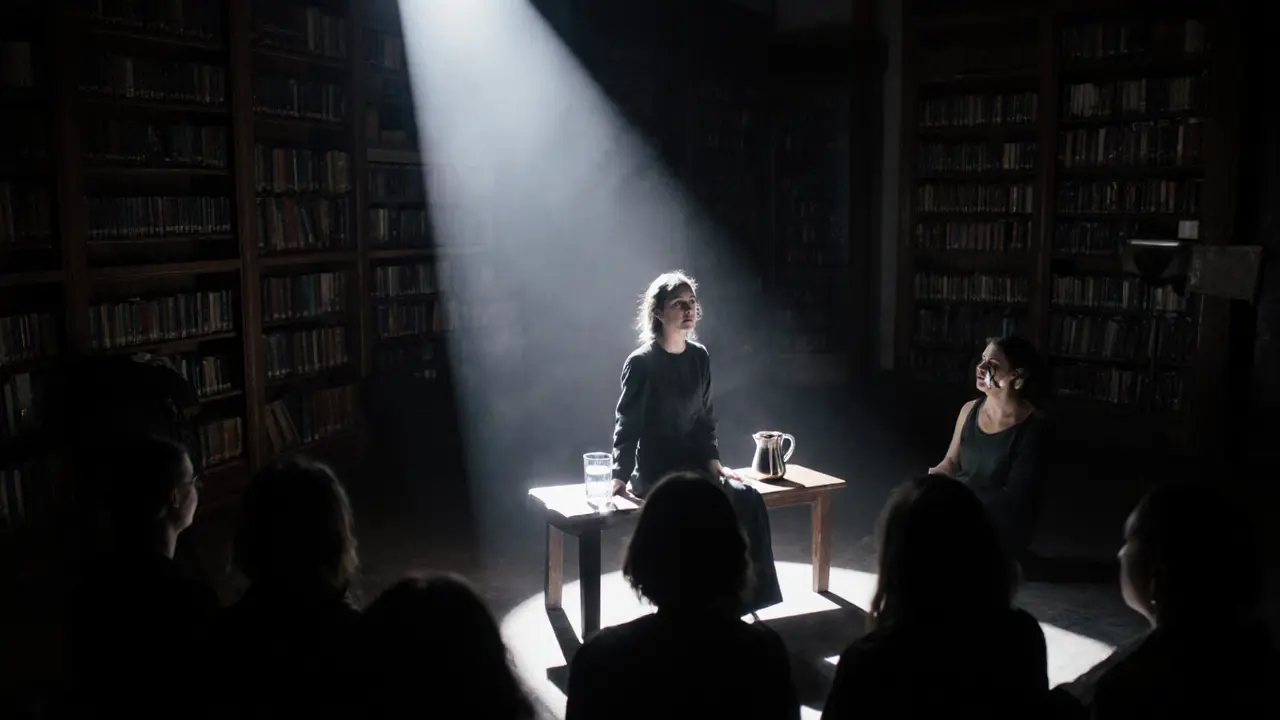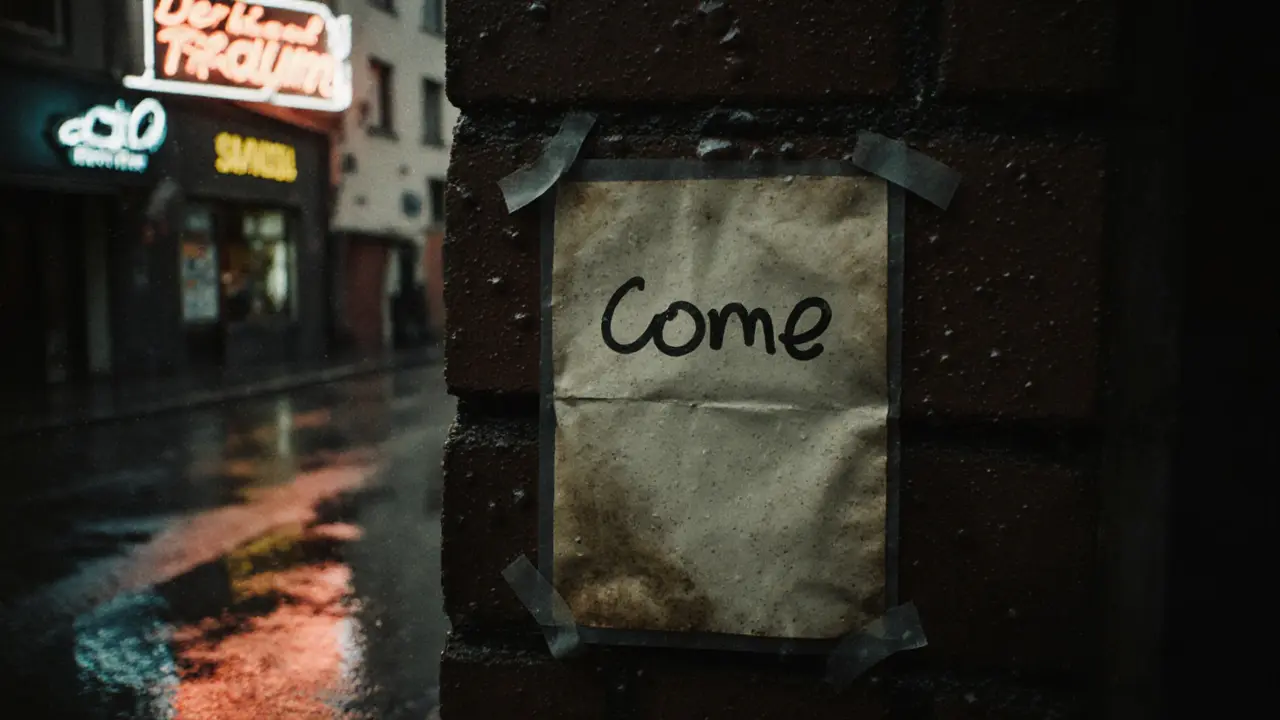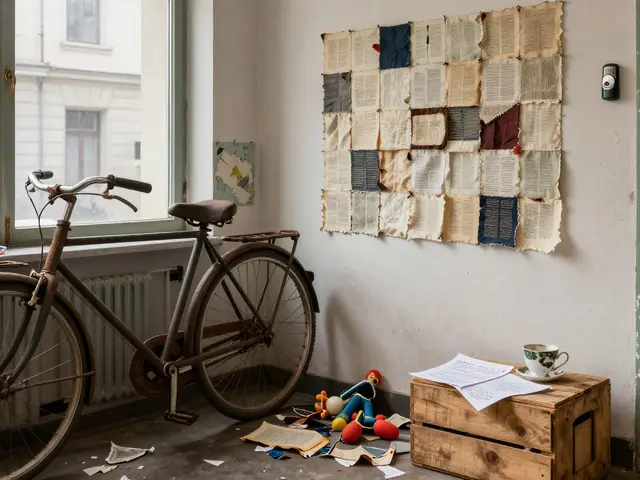Lilli Vanilli: How Munich Became Her Creative Playground

- Maximilian Von Stauffenberg
- 10 November 2025
- 0 Comments
Lilli Vanilli doesn’t just perform in Munich-she lives there. Every corner of the city feels like part of her stage. From the quiet beer gardens in Schwabing to the neon-lit back alleys of Schwabing-West, she moves through Munich like it was built for her. Not because she’s famous, but because she’s present. She’s the woman who orders coffee at the same corner café every morning, then heads to a rehearsal space tucked above a vintage record store. By midnight, she’s lighting up a stage in a basement club where the crowd doesn’t care about her past-they only care about what she does next.
How Munich Shaped Her Performance Style
Munich isn’t Las Vegas. It doesn’t have giant billboards screaming for attention. It has subtlety. And Lilli Vanilli learned how to use that.
Early in her career, she tried copying the over-the-top shows she saw in Berlin or Hamburg. Big costumes. Loud music. Explosive choreography. It didn’t land. Munich audiences didn’t want spectacle-they wanted authenticity. So she changed. She started using the city itself as her prop. A single spotlight. A vintage microphone from the 1950s. Her own voice, unfiltered. She’d perform in a dimly lit room with no stage, just a wooden chair and a curtain pulled from a thrift store. People started showing up not because they’d heard her name, but because someone whispered, ‘You have to see this.’
Her signature act? A slow, spoken-word piece set to live jazz, where she tells stories about growing up in a small Bavarian town, then contrasts them with her life now. The contrast isn’t dramatic-it’s quiet. And that’s what makes it unforgettable.
The Underground Scene That Gave Her a Home
Munich’s adult entertainment scene doesn’t operate like other cities. There’s no centralized district. No red-light zone. Instead, it’s scattered-hidden in art galleries, converted warehouses, even a former Catholic youth center turned performance space.
Lilli found her first real gig at Der kleine Traum, a tiny venue above a bicycle repair shop in Haidhausen. The owner, a retired opera singer named Helga, didn’t book ‘performers.’ She booked ‘artists.’ Lilli walked in with a folder of photos and a playlist. Helga looked at her, said, ‘You don’t look like you need this,’ and handed her the keys to the space for Friday night.
That night, only seven people showed up. Three stayed for the whole set. One of them became her lighting designer. Another, her sound engineer. They still work together. No contracts. No agents. Just trust.
Her Daily Rituals in the City
Lilli doesn’t have a luxury apartment. She lives in a 1920s walk-up near the Isar River, with a view of the water and the occasional heron. Every morning, she walks the same route: past the flower market on Sendlinger Straße, through the Englischer Garten, then down to a small bakery that only opens at 7 a.m. She buys one rye roll, one espresso, and sits on a bench watching the city wake up.
She doesn’t post it online. She doesn’t need to. This is her reset. No phones. No cameras. Just silence and the sound of bikes passing.
Her afternoons are spent in rehearsal. She doesn’t use mirrors. She practices in front of a blank wall. ‘If I can move someone without seeing their face,’ she says, ‘then I know it’s real.’

Why Munich, Not Berlin or Hamburg?
People always ask why she didn’t move to Berlin. The answer is simple: Berlin is loud. Munich is patient.
In Berlin, you have to scream to be heard. In Munich, you whisper-and if someone listens, they’ll remember it forever.
She’s watched performers come and go in other cities. They burn out fast. The pressure to be bigger, louder, more viral. Munich doesn’t reward that. It rewards consistency. Depth. Presence.
She’s had offers. Big contracts. Tours. Reality TV. She turned them all down. Not because she’s against fame. But because she knows what she’s building here can’t be replicated elsewhere.
The Quiet Rebellion of Her Art
Lilli Vanilli’s work isn’t about shock. It’s about stillness. In a world that rewards quick hits and viral moments, she’s making art that lingers.
Her most talked-about piece? A 12-minute solo performance called ‘Der letzte Biergarten.’ No costumes. No music. Just her, sitting on a wooden bench, talking about her grandmother’s recipe for apple strudel-then slowly shifting into a story about losing her first love at 19. Halfway through, she stands, pours a glass of water from a pitcher, and drinks it. Then she sits back down. The audience doesn’t clap. They just sit. For a full minute after she finishes, no one moves.
That piece has been performed 47 times. Each time, in a different location: a library, a hospital waiting room, a train station platform. No tickets. No advertising. Just word of mouth.

What She’s Building, Not Just Performing
Lilli isn’t trying to become a star. She’s trying to build a space where others can be themselves.
Every year, she hosts a free workshop called ‘Die Stimme der Stadt’-The Voice of the City. Anyone can come. No experience needed. No audition. Just show up with a story you’ve never told anyone. She’ll help you find the rhythm in it. Last year, a 72-year-old retired teacher stood up and read a letter she never sent to her son after he came out. The room was silent. Then someone started clapping. Then everyone did.
That’s the real legacy-not the shows, not the headlines, but the quiet moments she’s helped create.
Where to See Her Next
You won’t find her on a tour schedule. She doesn’t have one. But if you’re in Munich between October and March, check the bulletin boards at Der kleine Traum, Die Kulturscheune, or the library on Leopoldstraße. Sometimes, she posts a single flyer with just a date, time, and a single word: ‘Come.’
There’s no QR code. No website. No Instagram post. Just a piece of paper taped to a wall.
That’s the point.
Who is Lilli Vanilli?
Lilli Vanilli is a performance artist and adult entertainer based in Munich, Germany. Known for her quiet, emotionally grounded acts, she blends spoken word, theater, and intimate storytelling. Unlike mainstream performers, she avoids spectacle and instead focuses on authenticity, often performing in non-traditional spaces like libraries, cafes, and converted warehouses.
Why is Munich important to Lilli Vanilli’s career?
Munich gave Lilli the space to develop her art without pressure to conform to louder, more commercial styles. The city’s culture values subtlety, patience, and depth-qualities that align with her work. Unlike Berlin or Hamburg, Munich’s underground scene is decentralized and community-driven, allowing her to build genuine connections with audiences and collaborators over time.
Does Lilli Vanilli perform outside of Munich?
She rarely does. While she’s received offers for tours and international festivals, she chooses to stay rooted in Munich. Her performances are intentionally local-often held in unexpected public spaces like train stations or hospital waiting rooms. She believes her art grows from the city’s rhythm, not from chasing global attention.
How can someone see Lilli Vanilli perform?
There’s no official website or social media page. Her shows are announced through physical flyers posted in local spots like Der kleine Traum, Die Kulturscheune, and the Leopoldstraße library. She often uses just a single word on the flyer-like ‘Come’-to draw people in. If you’re in Munich between October and March, keep an eye out for these notices.
Is Lilli Vanilli part of the adult entertainment industry?
Yes, but not in the traditional sense. She performs in adult entertainment spaces, but her work is more aligned with performance art than strip clubs or burlesque. Her shows focus on narrative, emotion, and human connection rather than physical exposure. Many attendees describe her work as therapeutic or cathartic, not titillating.


